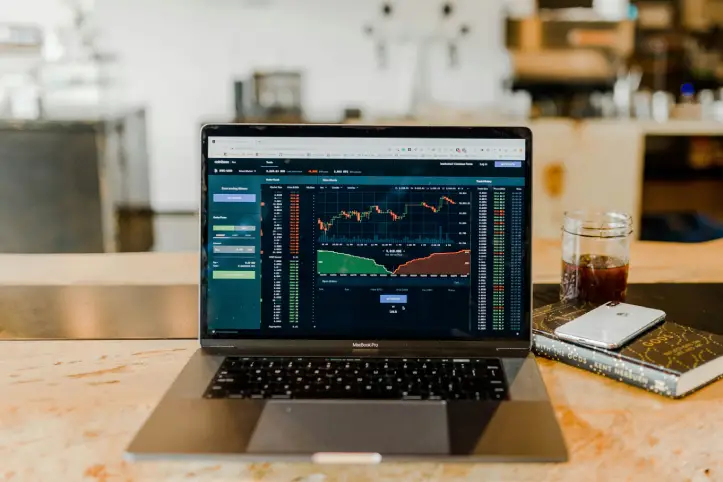Understanding what is the minimum money I need to start stock trading in India: When a newcomer enters the realm of the stock market, the first question that comes is, “What is the ideal amount to start investing in the stock market?” or “How much money do I need to start stock trading in India?” They want to trade or engage in the stock market, but they don’t know how much money they’ll need to get started.
In this post, we will look at the minimal amount required to invest in the stock market. How much cash should you have in your bank account before you start trading or investing in stocks? By the end of this post, you’ll know how much money you need and what the minimum requirement is for trading or investing in the stock market. Let us get started.
What is The Minimum Money I Need to Start Stock Trading in India?
The simplest answer is that there is no minimum amount required to begin trading or investing in the Indian stock market. It’s fine if you have Rs 100 in your bank account. If you like, you can buy equities for as little as Rs 10. Here is a list of some of the most famous stocks on the Indian stock market with share values under Rs 100.
Overall, the amount of money required to begin investing or trading in stocks is entirely dependent on the stock you find interesting enough to trade or invest in. The Indian stock markets (BSE and NSE) offer a number of stocks with share prices ranging from Rs 1 to Rs 10,000. There are hundreds of stocks having market capitalizations of less than Rs 10 (commonly known as penny stocks).
To begin trading in India, you do not need thousands or lakhs of rupees. Any amount from which you can purchase a stock is sufficient to begin trading; there is no minimum amount required to begin trading in the Indian stock market.
Here is a list of a few popular firms with stock values under Rs 100 (at the time of writing).
| Company | Industry | Market Cap (Rs Cr) | Current Price (Rs) |
|---|---|---|---|
| Punjab National Bank | Bank - Public | 86,359 | 78.05 |
| IDBI Bank Ltd. | Bank - Private | 66,547 | 62.30 |
| Yes Bank Ltd. | Bank - Private | 57,920 | 19.70 |
| IDFC First Bank Ltd. | Bank - Private | 59,522 | 84.60 |
| Steel Authority Of India Ltd. | Steel & Iron Products | 37,290 | 90.65 |
| Vodafone Idea Ltd. | Telecommunication - Service Provider | 68,930 | 13.85 |
| Indian Overseas Bank | Bank - Public | 76,101 | 39.90 |
| NHPC Ltd. | Power Generation/Distribution | 53,038 | 54.40 |
| GMR Infrastructure Ltd. | Engineering - Construction | 34,809 | 57.55 |
| UCO Bank | Bank - Public | 46,293 | 38.40 |
| Bank Of Maharashtra | Bank - Public | 31,739 | 44.60 |
| Central Bank Of India | Bank - Public | 39,533 | 45.15 |
| National Aluminium Company Ltd. | Aluminium & Aluminium Products | 17,005 | 93.7 |
| Alok Industries Ltd. | Textile | 10,487 | 20.6 |
| SJVN Ltd. | Power Generation/Distribution | 29,866 | 81.50 |
Any of these companies is straightforward to invest in. Surprisingly, the stock values of these companies are even lower than the fares of your local Ola or Uber rides. People continue to guess that purchasing stocks is costly. In addition, a complete list of equities listed on Indian stock exchanges may be found here.
Overall, the answer to the question ‘what is the minimum money I need to start stock trading in India?’ is that there is no minimum money needed for commencing stock trading in India.
However, Is this all you expected to learn from the content of the post? I don’t think so. Let’s keep on learning a few more things that any novice should know.
Suitable Amount for Beginners to Begin Investing or Trading
The following critical question should be, “How much should I initially invest in the stock if there is no minimum amount required to begin stock trading?”
The answer is that if you are new to the industry and are still learning, it is always best to start small. Invest as little as possible and concentrate on learning. Anything between Rs 500 and Rs 2,000 would be sufficient. You don’t want to lose thousands of dollars at the outset of your investment trip, then depart furiously and pledge yourself that you’ll never return to the market again.
However, this does not imply that you should use this figure as a hard and fast guideline for your initial investment. Assume you discovered a stock that is a little more expensive, say Rs 2500 per share. If you’ve done your homework, reviewed the stock fundamentals, and are convinced that the stock will provide a solid return in the future, then go for it.
However, for beginners, anything between Rs 500 and Rs 2,000 can be utilised as the initial stock market investing amount. The main advantage of this guideline is that you won’t lose too much money if things don’t go as planned.
Perhaps you misread the stock or performed an incorrect fundamental analysis, or the stock price plummeted as a result of poor luck. Nonetheless, the loss will not have a significant financial impact on you. Regardless, this purchase will teach you a few things. According to the traditional proverb, “failures are the best teachers.”
FAQs on Minimum Money Required to Start Stock Investing in India
There’s no specific minimum amount mandated by SEBI. However, brokerage firms might have their own minimum deposit requirements.
Yes, some platforms allow trading with minimal amounts. However, smaller investments might limit your options and potential returns.
Consider your financial goals, risk tolerance, and the stocks or instruments you want to invest in. Diversification is key, even with a smaller amount.
Yes, brokerage fees, taxes, and transaction charges apply. It is essential to include these in your calculations.
Yes, many trading platforms offer demo accounts where you can practise trading with virtual money, allowing you to familiarise yourself with the market before investing real funds.
Starting with a small amount can limit your options and potential returns. Additionally, smaller investments might be more susceptible to market volatility.
Yes, most platforms allow you to add funds to your trading account at any time, giving you flexibility as you gain confidence and want to invest more.
A Few Other Points to Know Before Your Start
— Your initial investment will educate you a great deal.
Your first investment will teach you a lot. Remember that it isn’t always about winning. Remember the famous phrase, “Sometimes you win, and sometimes you learn.” Furthermore, your initial investment will teach you additional vital lessons. You will discover what you should do as well as what you should not do.
Furthermore, losing little sums of money will not harm your spirit, and you will be able to return to the game, this time better equipped and educated. On the other side, congrats if you win, i.e. the stock did well. You did an excellent job!
If your first investment fails, you will learn a valuable lesson. On the other hand, if your first stock is a winner, it brings you great delight and serves as a lasting memory. You’re going to get something either way. Either a lesson or a source of delight.
In my situation, I purchased three equities during my initial investment. Two of the three did well, but the third underperformed for three months in a row. Even while the overall portfolio was profitable, the returns were not as good as I had hoped. As a result, after the third month, I sold the third stock. (Spoiler alert: the third stock went on to become a multi-bagger over the next two years. However, I have no regrets.)
For newbies, I recommend that they monitor their stock portfolio for three to five months before investing actively in the market. The initial large earnings on your stock may give you the confidence to continue purchasing further equities. But you shouldn’t be greedy just now. Remember that for beginners, learning how to perform value investing is more essential than making money. And once you’ve mastered the fundamentals, the game is yours.
Also Read
— Basic Charges And One-Time Payments
Before we proceed, you should be aware that Demat and Trading accounts are necessary in order to trade or invest in stocks. Account opening and annual maintenance expenses (AMC) will apply to both of these accounts. Most stock brokers will charge an account opening fee of Rs 200-500 (one-time payment) and an annual maintenance fee of Rs 300-600 per year. As a result, prepare for these expenses.
Furthermore, there are certain extra expenses that must be paid by both buyers and sellers when purchasing shares online. They are often less than 0.5% of the transaction value. Brokerage fees, transaction fees, GST, and other fees are examples of extra expenses. As a result, while purchasing a stock, you must also consider these fees. Even though they are minor amounts, they will add up in the total cost of the stock you purchased.
Broker Guide India’ recommended top brokers to open demat and trading account in India
No. 1 STOCK BROKER IN INDIA
Angel One
0 Brokerage on Equity Delivery | Rs 20 per order for Intraday and F&O trades
Get Free Demat Account
Zerodha
Free equity & mutual fund investments | Flat ₹20 intraday and F&O trades
Get Free Trading Account
ICICI Direct
ZERO Brokerage on Intraday Trades | All other F&O at ₹20 per order
Get Free Trading Account
Alice Blue
ZERO Brokerage on Intraday Trades | All other F&O at ₹20 per order
Get Free Trading Account
Upstox
ZERO Brokerage on Intraday Trades | All other F&O at ₹20 per order
Get Free Trading Account
Samco
ZERO Brokerage on Intraday Trades | All other F&O at ₹20 per order
Get Free Trading Account
5 Paisa
ZERO Brokerage on Intraday Trades | All other F&O at ₹20 per order
— 100 Minus your age rule
The ‘100 minus your age rule’ is a well-known formula for determining how much you should invest in the stock market. The rule is founded on the idea of gradually lowering your risk as you age. The regulations are as follows. ‘The percentage of your net worth in stock should be equal to 100 minus your age.’
Assume you are 20 years old and your entire savings to date are Rs 1,000. Then, your investment in the stock market should be (100-20) = 80% of your entire net worth. In other words, if you are 20 years old, you should invest Rs 800 in the stock market from a total savings of Rs 1,000.
— The X/3 Rule of Investing
This is another recommended tip for novices to follow while investing to decrease risk. If x is the entire amount you plan to invest in a stock, the rule states that you should only invest x/3 of it at first. If the stock is performing well after a few weeks, you can invest your next x/3 amount in it. After a few months, the last x/3 reappeared.
For example, if you want to invest Rs 10,000 in stock, don’t buy it all at once. Initially, invest merely 10,000/3= Rs 3,333. If your investment grows, you can contribute Rs 3,333 in the following round and the remaining Rs 3,334 in the final round. The rule significantly reduces risk and aids in average out the buying price.
Anyway, one little issue with this rule is that it lessens the concentrated quantity. As a result, if the entire amount was invested at the same time, the ultimate profit may be slightly lower than projected. Still, it’s a terrific rule for stock market newcomers, and it’s helped a lot of newbies drastically cut their risk and losses.
The ‘75% profit rule’ is another regulation. It is, however, more of a theory than a law. It states that if 75% of the stocks in your portfolio are performing well, you can increase your investment. For example, if you purchased four stocks and three of them are performing well, this indicates that your approach is working and you can expand your investment.
The chances of all four equities in your portfolio doing admirably are quite slim. Even Warren Buffett, the world’s best investor, has certain equities in his portfolio that provide negative returns.
In summary, if 75% of your stocks are performing well, it indicates that your strategy is sound and that your portfolio is not being driven by chance. In other words, if you just have one stock in your portfolio and it is rapidly expanding, there may be a luck aspect. However, if 7 out of 10 stocks in your portfolio are expanding, it is more likely that you performed your homework right.
Closing Thoughts
For those wondering, ‘How much money do I need to start stock trading in India?’The answer is that there is no such thing as a minimum amount of money required to begin trading in India. Anything that appeals to you is suitable for the market. Any amount of money that can be used to purchase a stock is sufficient for joining the market. Any amount you are willing to invest is sufficient to begin stock trading in India.






















